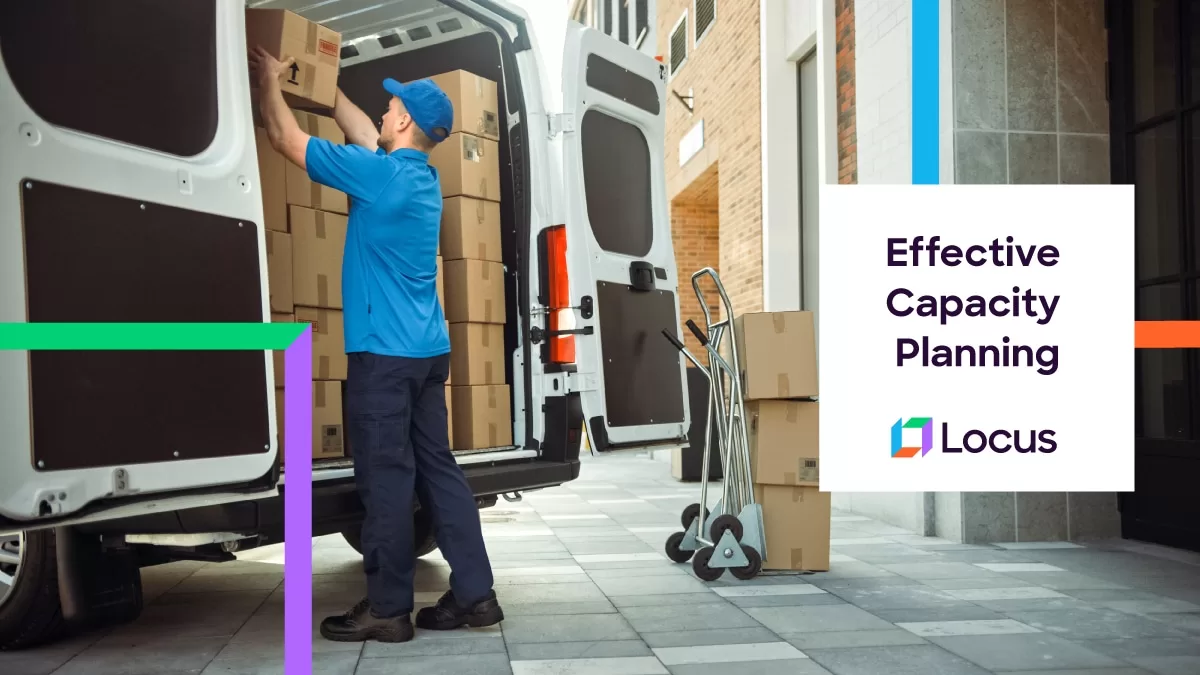Retail & CPG
How Effective Capacity Planning is key to Success for Omnichannel Retailers
Feb 2, 2023
5 mins read

Shoppers’ habits have rapidly evolved from buying just at Brick and Mortar stores to ordering everything from their fingertips. E-commerce companies like Amazon, Alibaba, and other organizations introduced shoppers to a new world of shopping. Post this development, every retailer thought strongly about implementing an omnichannel strategy for their business to acquire more customers.
Delighting customers who buy from physical stores wasn’t a challenge for retailers. It’s the ones that wanted an online experience to be just as good. Simply providing discounts and a large wouldn’t cut it for long; consumers wanted orders delivered rapidly, and with a seamless, delightful experience that is augmented by retail capacity planning.
According to a study1, there were 268 million digital buyers in the United States in 2022, which was projected to increase to almost 285 million in 2025. 62% of online shoppers in the US say delivery speed is what makes for a good purchase experience. Catering to a customer of this magnitude and delivering on time in the first attempt was nearly impossible for retailers due to various challenges like capacity planning in logistics, routing, cost, insights, and more.
Challenges retailers face during capacity planning in logistics
Capacity planning is one of the key pillars of fast deliveries as it is the very first step in the process after retailers receive the order, for which suitable vehicles and drivers need to be assigned to start the delivery. This is easier said than done, as there are various challenges that plague dispatchers with respect to capacity management. Here are a few:
- Capacity planning during peak season: Due to inefficient capacity planning, retailers could only accommodate a small volume of orders. Operations/delivery hub managers lack the visibility of drivers and vehicles due to less-than-optimal capacity management.
- Unable to plan during drivers’ time off: Dispatch or delivery managers cannot plan ahead of time to accommodate orders during drivers’ time off or holidays, etc, due to an inefficient capacity management solution, leading to loss of revenue from eventual delays.
- Manual scheduling and assigning: One major challenge dispatchers face is the manual intervention to assign and schedule orders. Dispatchers have to take it upon themselves to ensure what vehicle and driver to assign the orders to, which can take up much time, leading to inefficient deliveries, delays and errors along the way.
- Lack of insights: Many systems don’t provide insights to improve future deliveries leading to decreased efficiency in the following delivery round. The dispatchers/delivery managers are left to figure out patterns through excessive permutations and combinations, leading to errors and, ultimately, inefficiencies in capacity planning.
- Non-compliance: There are laws regarding minimum and maximum work hours for drivers in every country. Dispatchers need to add this information for every driver for every location and geography, which can take up much time. Not complying with these rules could lead to penalties for retailers.
- Integration Issues: The primary purpose of integration is to avoid data silos that cause visibility issues for dispatchers and other stakeholders leading to challenges down the road for the company and the logistics team.
Retailers are currently being plagued by these challenges which is severely hindering their ability to perform well in the last mile and adhere to their SLA commitments.
The Locus Solution for end-to-end capacity management
Even with numerous challenges for retailers in the last mile, technology has been able to revolutionize the way logistics is handled in this crucial segment. Locus’ capacity management system has just done that.
- Integrated roster management: Locus’ capacity management solution has integrated roster management. A single dashboard for dispatchers to track fleet and manage drivers’ shift/operating hours across all geographies helps the company accommodate large volumes of orders regardless of geographies and time zone, leading to streamlined deliveries and less leakage in revenue.
- Accommodate for drivers’ time-off: Locus’s capacity module enables dispatchers to plan for upcoming holidays, driver days-off, and sick days in advance, ensuring they can secure capacity when needed.
- Insights to improve future delivery: Due to a lack of data post deliveries, dispatch managers don’t have enough insights to plan shifts well for future deliveries, making their capacity management inefficient. Locus provides real-time post-delivery data to leverage as insights so that you can build a foolproof shift plan to accommodate orders and deliver on time.
- Automated scheduling: Driver schedules and available vehicles are automatically patched into an advanced routing optimization engine to generate delivery plans for the orders received with no intervention, leading to faster allocation of orders and deliveries.
Know the role of logistics in omnichannel fulfillment
- Better driver experience: With Locus’ intelligent capacity planning system, orders are allocated smartly to available vehicles and drivers in a just and equitable way, leading to improved driver productivity and experiences.
- Compliance made easy: Configure drivers’ shift timetables like shift timings, break time, lunch hours, etc, to comply with the regulations put forth by the government to make sure you don’t fall under non-compliance.
- 30 different APIs to leverage: Leverage 30+ simple and robust APIs to incorporate driver and vehicle shifts into your daily dispatch plans effortlessly. Also, you can integrate this into your order management, CRM, and other systems to improve visibility and reduce data silos.
Retailers can partner with a robust capacity management solution vendor like Locus to eliminate inefficient capacity planning and delayed deliveries.
Why choose Locus?
| On-time deliveries | On-demand routing | Logistics cost saved |
|---|---|---|
| 99.5% | <30 seconds | $200 million |
If your organizations’ logistics/dispatch management software doesn’t have the necessary capacity management capabilities or you are doing most of your last mile operations manually, Locus can help see you through to the finish line.
Related Tags:

Last Mile Delivery Optimization
Last-Mile Growth, Delivered in less Than 7 Minutes! Take The First Step With Our Maturity Assessment
Last-mile maturity assessment will contain a number of actionable insights and recommendations designed to help your enterprise supercharge the last mile.
Read more
Webinars
In Focus: Retailers, Customer Delight is Tied to Exceptional Delivery Experiences
The key for retail companies to achieve customer delight is an enhanced delivery experience as shoppers pay more attention to the delivery experience.
Read moreMOST POPULAR
EDITOR’S PICKS
SUBSCRIBE TO OUR NEWSLETTER
Stay up to date with the latest marketing, sales, and service tips and news


How Effective Capacity Planning is key to Success for Omnichannel Retailers